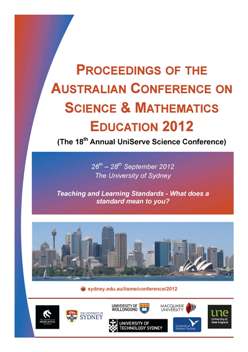Out of one’s comfort zone: Developing a non-traditional first-year university mathematics subject
Abstract
Demand for quantitatively literate students in the sciences has significantly increased in recent years as advances in technology dictate industry and business employee capabilities. However, the higher education sector in the sciences is struggling to ensure that its graduates meet these demands as progressively more students are entering science courses with poor mathematical skills and attitudes. Traditional science curricula have tended to meet these standards by including one or two mathematics and/or statistics compulsory subjects to develop quantitative skills in students with varying degrees of contextualisation dependent on the discipline. Such conventional mathematics and statistics content has not, however, equipped students necessarily with the essential skills to transfer and apply their mathematical knowledge gained in traditional mathematics subjects into scientific contexts. At the University of Western Sydney, a curriculum review, created mathematical pathways for student progression to improve quantitative standards including a mathematics subject “Quantitative Thinking”, integrated and closely linked to first year science subjects. We report here on the concerns, issues, successes and failures as experienced by the academic staff developing this mathematics subject for first year science students. Staff experienced a major pedagogical shift in not only developing the content, but in the method of delivery and assessment tasks used.Downloads
Published
2012-08-24
Issue
Section
Abstracts
